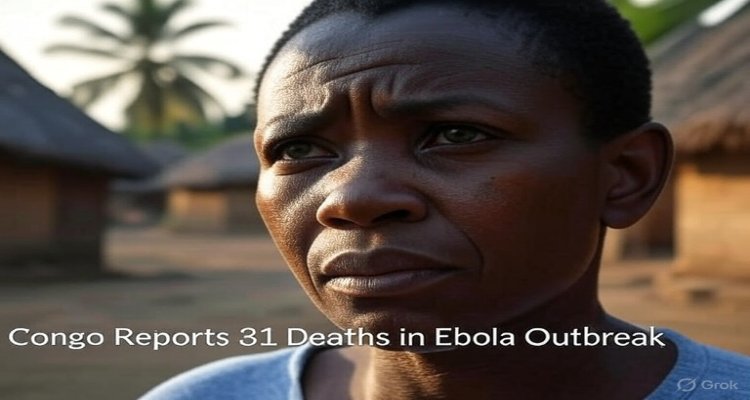Congo Reports 31 Deaths in Ebola OutbreakCongo Reports 31 Deaths in Ebola Outbreak

The Democratic Republic of Congo faces a deadly Ebola outbreak in Kasai Province, with 31 deaths reported. Vaccination efforts are underway.
Introduction: A Grim Reminder of a Persistent Threat
The Democratic Republic of Congo (DRC) is once again in the global spotlight as it battles a deadly Ebola outbreak. On September 4, health authorities confirmed the presence of the Ebola Zaire strain in Kasai Province, where 48 cases have been recorded and 31 people have lost their lives. The outbreak has reignited concerns about the country’s fragile healthcare system and the constant threat of resurging epidemics in Central Africa.
Context & Background: A History of Outbreaks
Ebola virus disease (EVD) first appeared in 1976 in two simultaneous outbreaks, one in South Sudan and the other in Yambuku, DRC. The latter gave the virus its name, derived from the nearby Ebola River. Since then, Congo has endured 16 outbreaks, making it one of the most Ebola-affected nations worldwide.
Kasai Province itself is no stranger to tragedy. Previous outbreaks occurred in Luebo in 2007 and Mweka between 2008 and 2009. The most recent national outbreak was reported in 2022 in Beni, North Kivu Province. While the DRC has developed experience in tackling Ebola, the recurring nature of these crises highlights both the resilience and the vulnerabilities of its public health system.
Main Developments: The Kasai Outbreak
The current outbreak is concentrated in the Bulape and Mweka health zones of Kasai Province, home to nearly 3.5 million people. Laboratory analysis in Kinshasa confirmed the cases as Ebola Zaire, the most common strain in the region.
According to the World Health Organisation (WHO), swift action is underway. Vaccination of frontline health workers and close contacts of confirmed patients began immediately using the ring vaccination strategy, a proven method designed to contain outbreaks by immunizing those at the highest risk of exposure.
Despite these efforts, the rising death toll underscores the challenge. Ebola has an average fatality rate of around 50 percent, though past outbreaks have ranged from 25 percent to as high as 90 percent.
Expert Insight & Public Reaction
Health experts warn that speed and community engagement are critical to halting the spread.
“Ebola outbreaks are not just medical crises; they are social challenges,” said Dr. Marie Nsimba, an infectious disease specialist based in Kinshasa. “Without the cooperation of local communities, even the best vaccines and strategies can fail.”
Community mistrust has historically hindered containment efforts in Congo. In some areas, cultural practices around burial and skepticism about medical interventions have fueled transmission. WHO and local authorities are now working closely with community leaders to build trust, encourage early reporting of symptoms, and promote safe practices.
Impact & Implications: What’s at Stake
The Ebola outbreak threatens to overwhelm fragile health services in Kasai, a province already grappling with limited medical infrastructure. Beyond immediate health concerns, the crisis poses broader risks:
- Public health strain: Resources are being diverted from other pressing health issues like malaria and measles.
- Regional instability: Neighboring provinces and countries remain on high alert due to potential cross-border spread.
- Economic disruption: Outbreaks often trigger trade restrictions, limit mobility, and strain local economies.
International agencies are monitoring closely. While vaccines and antibody treatments now exist, there is still no universally proven cure for Ebola. Supportive care—rehydration, symptom management, and hospital isolation—remains the cornerstone of treatment.
Conclusion: A Race Against Time
Congo’s latest Ebola outbreak is a reminder that the virus remains one of the deadliest threats to public health in Africa. With 31 lives already lost and the disease continuing to spread, containment is now a race against time. Vaccination campaigns and community cooperation offer hope, but the outcome will depend on how swiftly and effectively these measures are implemented.
As the world watches, Congo stands at a familiar crossroads—fighting not just a virus, but the cycle of fear, mistrust, and fragile infrastructure that allows such outbreaks to thrive.
Disclaimer: This article is for informational purposes only and is based on reports from health authorities and the World Health Organisation. Readers should refer to official public health advisories for updates and guidance.










